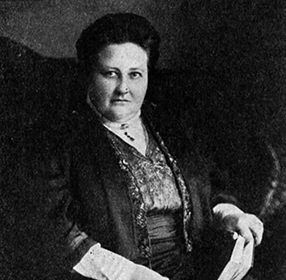The Weather-Cock Points South
I put your leaves aside,
One by one:
The stiff, broad outer leaves;
The smaller ones,
Pleasant to touch, veined with purple;
The glazed inner leaves.
One by one
I parted you from your leaves,
Until you stood up like a white flower
Swaying slightly in the evening wind.
White flower,
Flower of wax, of jade, of unstreaked agate;
Flower with surfaces of ice,
With shadows faintly crimson.
Where in all the garden is there such a flower?
The stars crowd through the lilac leaves
To look at you.
The low moon brightens you with silver.
The bud is more than the calyx.
There is nothing to equal a white bud,
Of no colour, and of all,
Burnished by moonlight,
Thrust upon by a softly-swinging wind.
This poem is in the public domain. Published in Poem-a-Day on June 11, 2023, by the Academy of American Poets.
“The Weather-Cock Points South” appears in Amy Lowell’s collection Pictures of the Floating World (Houghton Mifflin Company, 1921). In Queer Poetics: Five Modernist Women Writers (Greenwood Press, 1999), Mary E. Galvin, an instructor of literature, writing, and women’s studies at the State University of New York, Albany, argues that, in Lowell’s poem, the “descriptive exploration of the flower is transformed into a celebration of lesbian sexuality [. . .].” Commenting upon Lowell’s possible use of floral and lunar imagery to signify female sexuality, Galvin writes, “While these images are rich in erotic possibilities, I don’t quite believe Lowell was interested in encoding the sexual message too deeply. If anything, it seems Lowell wants to be sure that the reader gets the sexual connotations of the poem by using the already heavily connotated words ‘Thrust upon’ at the beginning of the last line. Lest the reader think this is the familiar heterosexual ‘thrust,’ however, Lowell immediately contrasts the potential violence of this verb with the sonorant phrase ‘by a softly-swinging wind.’ This final phrase carries lesbian implications not only in its reversal of expectations, but also in that it echoes back to the first stanza, where the wind is the only agent of motion besides the speaker, ‘I.’ Thus, Amy Lowell, who often read her poetry in person, by dint of authorship, associates herself with the speaker, who in turn is associated within the poem with the wind, as agent of erotic caress.”

